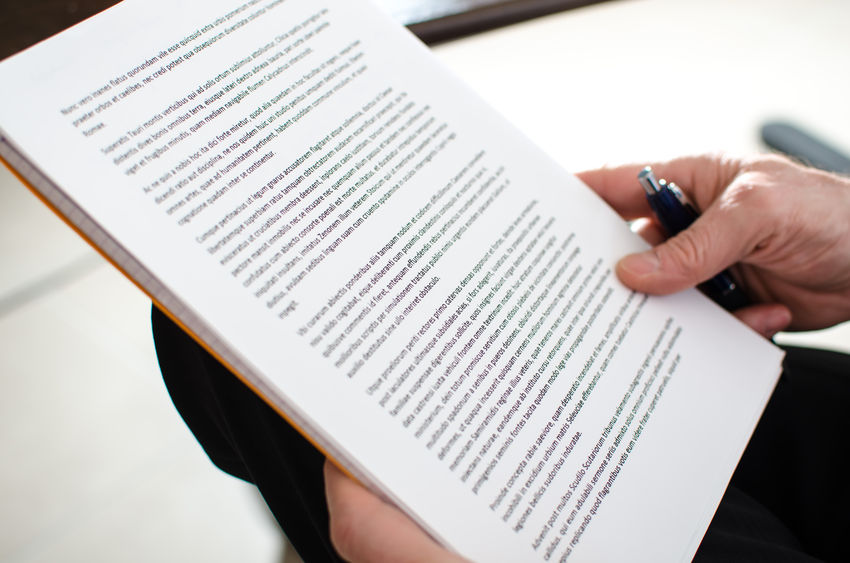- EXPERIENCED LAW FIRM IN TOLEDO, OH
- (419) 662-3100
Everything You Need to Know About Contesting a Will

How To File Probate in Ohio
April 1, 2021
Top 10 Things to Do This Summer in Toledo
May 7, 2021How To Contest A Will
Contesting a will is what you do when you challenge the validity of a person’s last will and testament during probate. Probate is the official judiciary process of validating a will. This process involves asset and property distribution in accordance with the instructions stated in the will. If you seek to invalidate a will’s terms, be sure you have legal standing.
What Grounds Do You Need to Contest a Will?
If you have reason to believe that a will does not represent a testator’s true intentions upon leaving a final will and testament, you may contest the will and render it invalid. Here are common grounds for contesting a will:
- The will fails to adhere to state laws: State laws vary and are very specific regarding valid will and testament requirements. If you live in Florida, a valid will needs to be in writing and have two witnesses sign in the testator’s presence. The testator’s signature must be at the end of the will. Review your state laws surrounding last wills and testaments, or contact a lawyer to determine whether you can contest a will on the grounds of informality upon signing.
- The will is unclear: Valid wills must clearly indicate that the testator meant for the document to be their last will and testament. You may argue that the testator did not intend for a document to be their will. Any doubt to a will’s validity can serve as grounds for contesting a will.
- The will contains forgery and fraud: You can contest a will on the grounds of fraud. However, it may be challenging to prove because the deceased testator cannot attest to your claim of intentional deception. If you can prove that the will contains forged signatures, the will becomes invalid.
- The will writer was unduly influenced or coerced: If you believe that someone persuaded the testator into signing a will, you may contest the will on the grounds of undue influence. Like fraud claims, it may be challenging to prove that someone coerced the testator into making the will you are contesting. Coercion may take the form of physical or verbal violence. You will need clear evidence to contest a will on the grounds of undue influence.
- An heir disagrees with asset distribution: As an heir, you can challenge a testator’s will based on unfair asset distribution. You may believe you are entitled to more of the estate than what the will states. Another example is when you may have mistakenly been taken out of a will. With such a situation, you can argue to have a share of the assets.
What Are the Chances of Contesting a Will?
The chances of contesting a will and winning are slim. Research shows that only 0.5% to 3% of wills in the United States undergo contests, with most will contests ending up unsuccessful. You will need valid grounds to contest a will.
If you believe you have a solid stance to challenge a last will and testament, you still need to consult with a lawyer and discuss how realistic your chances are.
In some cases, a testator may include a no-contest clause in their final will. This is an optional clause some will writers may consist of to discourage contests to their will. In such cases, you may be disinherited should your contest end in failure, leaving you with nothing from the will.
Can a Family Member Contest a Will?
Probate laws state that only particular parties may contest a will. These parties include the following:
- Heirs: Anyone who is eligible to receive the deceased’s property or assets include spouses, children, parents, siblings, grandchildren, and extended family members.
- Beneficiaries: If a testator included a list of beneficiaries in their last will and testament, representatives of a mentioned beneficiary might contest a will. If a past version of a will mentions a specific beneficiary but writes it out in updated versions, the beneficiary still has a potential stake in the testator’s will.
How Long Does Contesting a Will Take?
If you intend to contest a will, you must file your challenge within two years from the date that authorities file the will into probate. When probate starts, the statute of limitations — the period you can contest a will — begins.
Ideally, probate hearings will take less than a year to complete. This assumes that all parties involved are on good terms and all properties or assets in place are not taxable. Any complications with taxes or assets to be distributed may extend the hearings for over a year.
What Happens If You Contest a Will and Lose?
If you lose a will contest, you risk disinheritance. If the will includes a no-contest clause, then the will you contest will give you no piece of the estate property that the original will states you were meant to receive.
Besides losing your claims, you lose the money you invested in preparing to contest a will. You need to assess your risks and expenses before proceeding with a will contest. Consider getting advice from a will contest lawyer.
Conclusion
Contesting a will is a challenge to a deceased’s final wishes. Courts assume that everything is in order unless interested parties claim otherwise. This process can be expensive and uncertain. You need clear grounds to assess whether you have a fighting chance to contest a will.
If you win, then you will get the assets you claimed. You will get the money you are owed and any real properties you are promised. To make sure you win the will contest, you need a skilled probate lawyer to assess your realistic chances.
Contact HML today for a free consultation. We will walk you through your options if you intend to contest a will.









